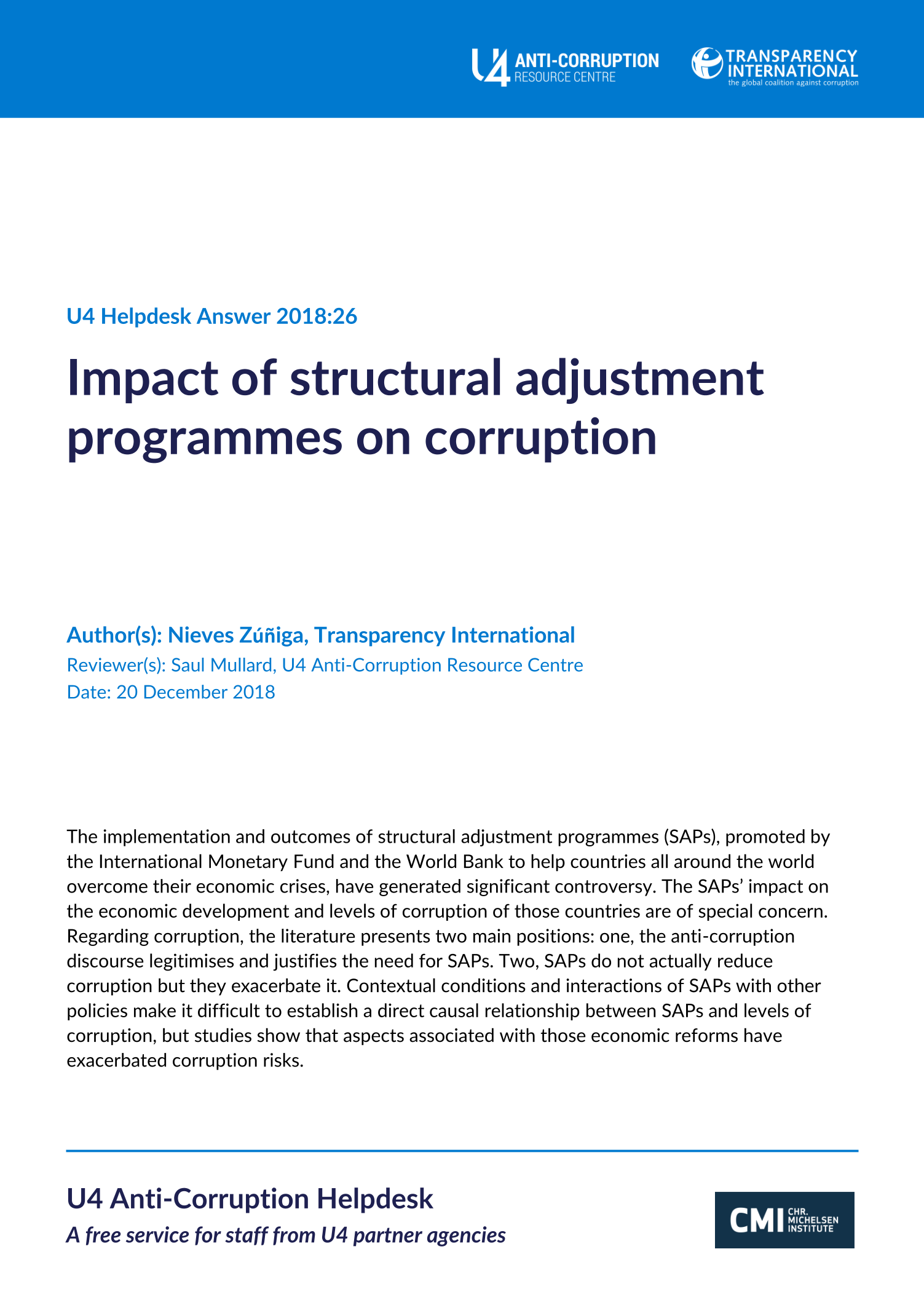Main points
- SAPs can potentially increase corruption at the same time that they can be legitimised by anti-corruption discourses.
- The phase of implementation of SAPs is especially vulnerable to corruption.
- The level of corruption in a country can also influence the success of SAPs.
